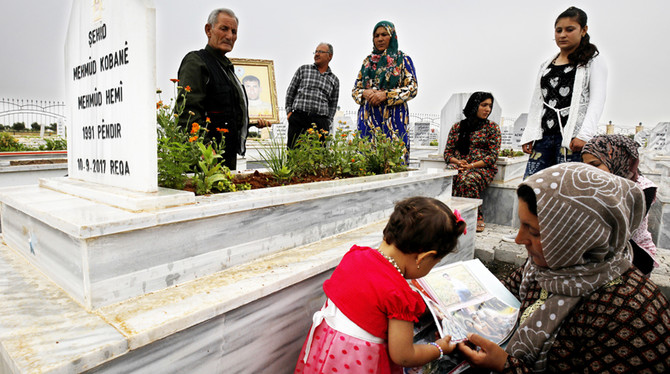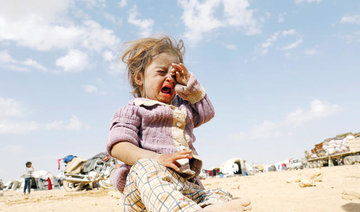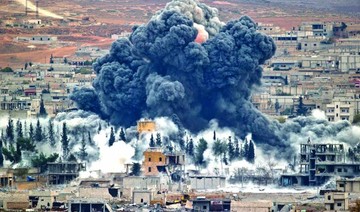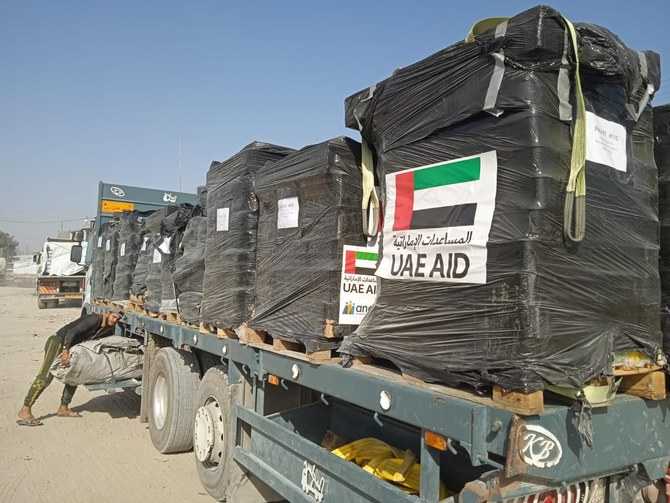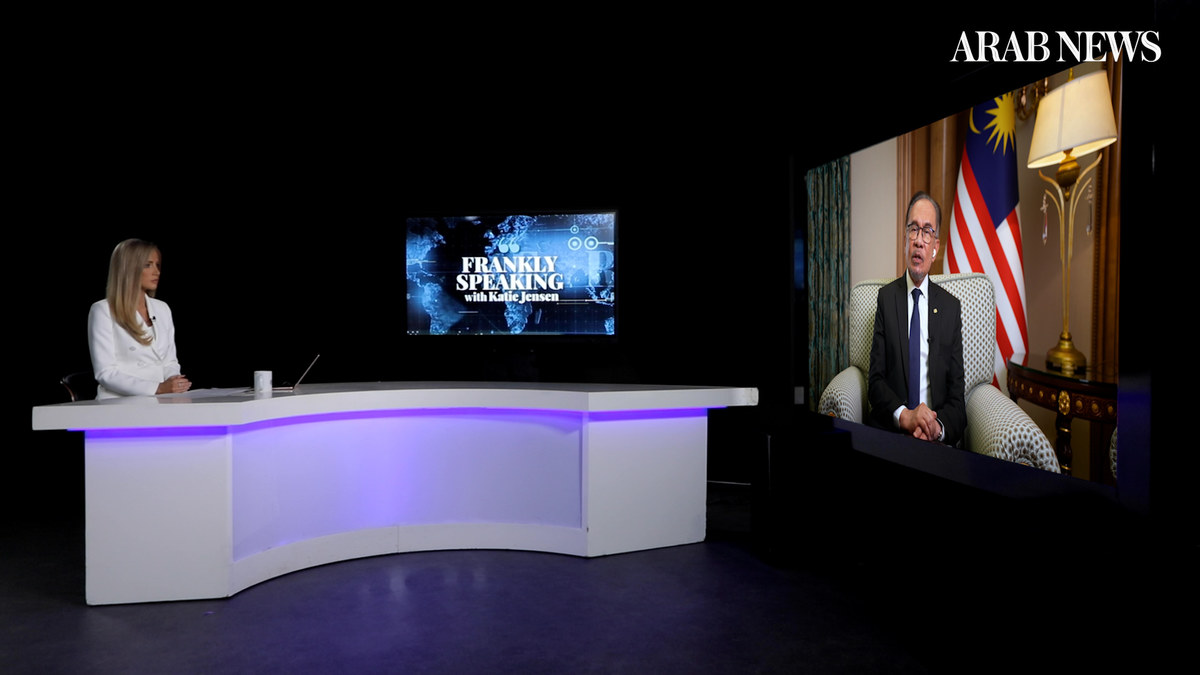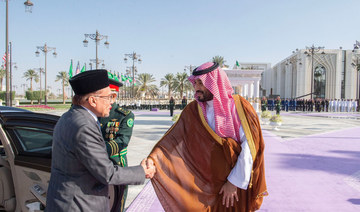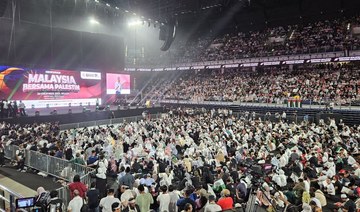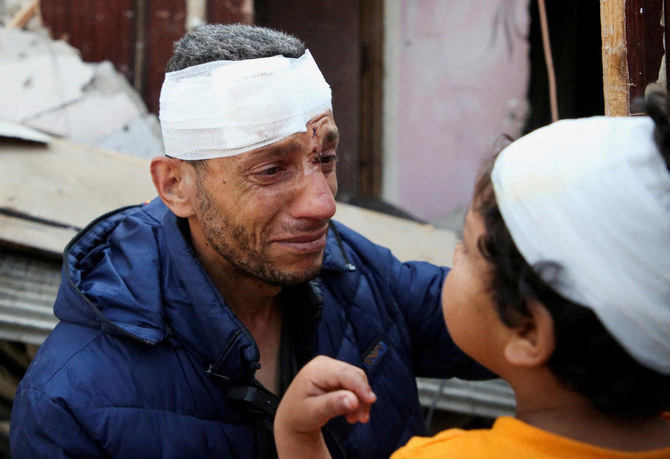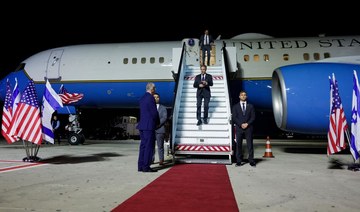KOBANE, Syria: With a father’s tenderness, Adham Olaiki clears dried leaves and twigs from his son’s final resting place, a neat marble grave on the edge of Syria’s Kobane.
It is a gloomy morning and rain clouds are forming ominously overhead, but Olaiki cannot forego his daily ritual of visiting the imposing site known as the Martyrs’ Cemetery.
Hundreds of identical tombs are arranged in rows, topped with planters holding yellow daisies and red roses that rise up to meet silvery headstones.
Buried underneath are civilians and fighters who lost their lives in more than three years of battle against Daesh, including Olaiki’s 12-year-old son.
The boy died in 2015, during the final stages of the four-month fight to oust Daesh from Kobane, on Syria’s northern border with Turkey.
Olaiki, 54, has taken solace in daily visits ever since.
“This place has become more than a home for me. I feel at peace near my son’s grave,” he says.
Olaiki himself took up arms to defend his hometown, and was wounded fighting alongside the Kurdish People’s Protection Units (YPG).
“The shrapnel scars are still visible,” he says.
The YPG, the leading Kurdish militia in Syria, has spearheaded offensives against Daesh across the country’s north and east, backed by a US-led coalition.
Many of its fighters are buried in the Martyrs’ Cemetery, their graves identifiable by the militia’s triangular yellow flag.
Each fighter’s name, nom-de-guerre, place and date of birth are inscribed in Kurdish, followed by the place and date of death, or “martyrdom.”
Many were killed fighting Daesh in Kobane in 2015, some in the flashpoint town of Manbij to the southwest in 2016, and others still in the 2017 assault to oust Daesh from Raqqa. Their graves are both markers of loss and monuments to a string of victories by the YPG-led Syrian Democratic Forces.
Now, the SDF is fighting the last dregs of Daesh in eastern Syria.
“Many of my fighter friends were buried here. We’re tired of war,” says Olaiki, gazing across the sea of graves around him.
“Peace must prevail and Daesh must be permanently eliminated, so we can feel we fought for stability and security, and actually achieved them both.”
The cemetery was set up in 2012, but graves began multiplying with the battle for Kobane. Today, 1,230 people are buried there, says Aref Bali, who heads a relief group for families of those killed.
Driving into Kobane, the graveyard is hard to miss: Five silvery pyramid-like structures are arranged in a semi-circle at the head of a large courtyard.
When the YPG or SDF lose a fighter, he or she is buried in a ceremony equal parts mournful and defiant. Speeches are delivered from the foot of the monument as friends, family, and Kobane residents chant: “Martyrs do not die.”
But most days, relatives quietly trickle into the cemetery to tend their loved ones’ graves, wiping dust from headstones and trimming the shrubs.
Toddler Layla gurgles innocently as she plays near the tomb of her father, a YPG fighter killed at the age of 26 by a mine last year in the city of Raqqa.
Her grandfather, 60-year-old Mohyeddin Hami, carries a framed portrait of his deceased son Mehmud in one hand, wiping away a tear with the other.
“Layla lost her father just 20 days after her birthday. He watched her turn one, and then died,” says Hami, dressed in a dark collared shirt.
Two of his other sons also fight for the YPG.
“We will pursue Daesh until not a single one of them is left in Kurdish lands in Syria. We will follow them until their demise,” he says.
“We did not bleed in vain — it’s all for the safety and stability of this country.”
Nearby, the Ibish family is paying respects to several of their sons lost in the fight against Daesh.
Hamad Ibish, 56, fought against Daesh in Kobane, shoulder-to-shoulder with his brother — but only one of them came out alive.
“We were constantly attacked and would hear voices saying: Oh infidels, we’re coming for you,” he recalls.
During a three-day assault on their position, Hamad’s brother was killed along with 12 other fighters. He also later lost his son and his nephew.
“We gave many lives. Every family has lost two or three people,” he says.
But, he adds, “we can hold our heads up high because of our martyrs. I’m happy Daesh is finished — people can rest in northern Syria without that brutal injustice.”



